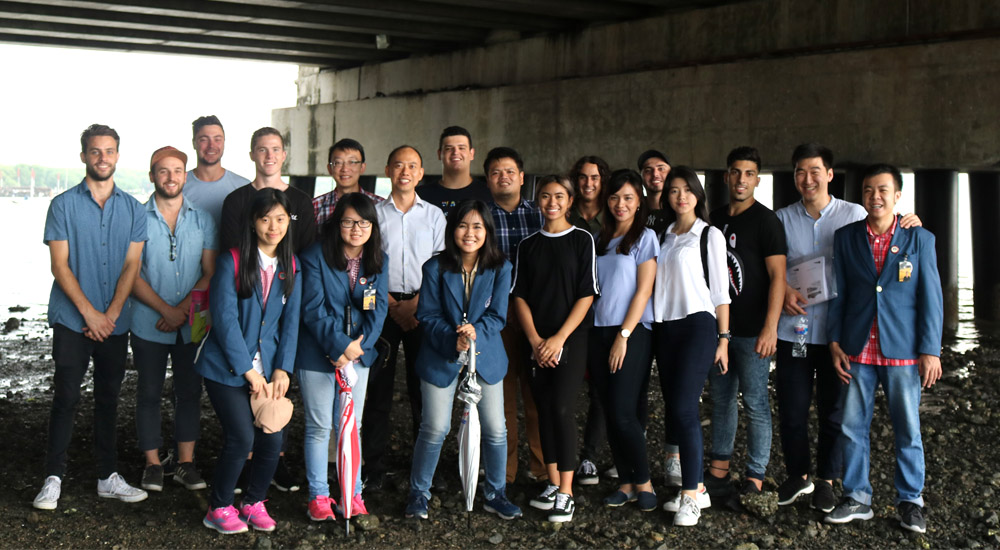Built Environment students experience Indonesian culture and technology on study trip
How do cultural practices and traditions affect the construction sector?
How do cultural practices and traditions affect the construction sector?

Students from the Bachelor of Construction Management and Property program in the Faculty of Built Environment experienced traditional Indonesian culture and hospitality while learning about international construction management and technology on a recent study tour to Surabaya, Indonesia.
The students were guests of Petra Christian University in Surabaya where they attended lectures before venturing into the field.
Highlights of the tour included a visit to Teluk Lamong, one of the world’s most advanced ports, where the students viewed the cutting-edge technology and learnt to control the high-tech cranes that lift containers. Another was a visit to the site of the world’s largest volcanic mudslide in Sidoarjo, which has been emitting volcanic mud since 2006 and covers 800 hectares of land, to learn about disaster mitigation and the use of volcanic mud as construction materials.

Students also visited a construction site to learn about building techniques such as friction damping, which helps to minimise damage during earthquakes, and a “Green” campus building and an affordable high-rise residential project.
The students took the opportunity to take part in local cultural traditions by taking lessons in Indonesian language and learning to cook specialities like Nasi Goreng (Fried Rice) and Nasi Kuning (Tumeric Rice). They engaged in local artistic practices, learning to create batik fabric scarves and masks and learning to dance the UNESCO recognised Saman, or dance of a thousand hands from Aceh Province, which is known for its fast-paced rhythm.
Dr Riza Sunindijo, Director of Postgraduate Research in the Faculty of Built Environment and course convenor, hopes that the broad nature of the experience will give students insight into the way cultural practices and local traditions affect construction management and technologies outside Australia. He believes it is important for them to see how working environments vary from country to country.
“Local culture and the history of the country affect the way people are managed and the development of infrastructure in the country,” he said.
“As a developing country, Indonesia has developed infrastructure projects that are yet to be seen in Australia.
“The Teluk Lamong Port in Surabaya is one of the most advanced ports in the world (only five other ports in the world have the same level of technology and automation.) The Suramadu Bridge, the longest bridge in Indonesia, is more than five kilometres long and was built in very hazardous environments.”
According to Sunindijo, despite this access to advanced technology, the supply of cheap labour means that Indonesia’s construction industry remains labour intensive and health and safety standards are not comparable to those in Australia. It is differences like this that he wants the students to experience.
“Expecting them to implement high levels of health and safety will disadvantage companies that attempt to do so because they will not be able to win projects due to their high tender prices,” he said.
“It is also common for factories or construction projects in Indonesia to run 24 hours per day, which is unheard of in Australia.”
During the trip the students caught the attention of local media and were subsequently invited to the Australian Consulate in Surabaya where they met with Consul, Dr Paul Zeccola, and other consular staff to network and discuss their studies and experiences in Indonesia.
The trip forms a unit of the Bachelor of Construction Management and Property and aligns with the UNSW 2025 strategy by supporting educational excellence through inspired learning and provides internationally engaged education through learning in a multicultural community, language acquisition, and overseas experience. It also contributes to UNSW’s regional responsibility by collaborating with an Indonesian university.
The 2019 study tour to Indonesia has been funded by the Australian Government as part of the New Colombo Plan.